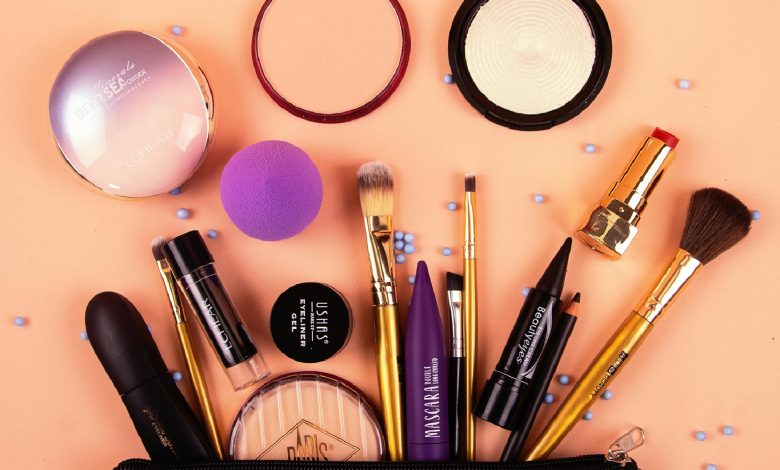Regulations for Exporting Cosmetic to Indonesia

Regulations for Exporting Cosmetics to Indonesia: A Step-by-Step Guide
Indonesia, with its large and growing beauty and personal care market, presents an exciting opportunity for cosmetic exporters. However, before you can start selling your products in this market, there are several regulations and compliance standards you need to follow. Here’s a step-by-step guide on what you need to know about exporting cosmetics to Indonesia.
1. Registering Your Products with BPOM
The first and most critical step in exporting cosmetics to Indonesia is getting your products registered with the Indonesian National Agency for Drug and Food Control (BPOM). This regulatory body ensures that all imported cosmetics are safe for consumers and comply with local standards.
Key Steps in BPOM Registration:
- Local Distributor Requirement: You must have a registered local Indonesian distributor or representative who can submit the application on your behalf.
- Documentation: Submit the product details, including:
- Product formulation and ingredients
- Packaging and labeling information
- Manufacturing process and location
- Safety data and testing results
- Product Testing: BPOM may require your products to undergo safety testing in accredited laboratories to ensure they meet health and safety standards.
- Approval Time: The approval process can take between 1-6 months, depending on the complexity of the product and the completeness of the documents submitted.
2. Labeling Requirements
Indonesia has strict labelling requirements for cosmetics. All labels must be in Bahasa Indonesia, and they should include specific information that ensures the consumer understands the product’s purpose and usage.
Your product label must include:
- Product name
- Complete list of ingredients
- Directions for use
- Manufacturer and distributor’s name and address
- Batch number and expiration date
- Precautionary statements, if necessary
- Product function or intended use (e.g., skincare, hair care)
Additionally, Indonesia has banned certain ingredients in cosmetics, such as mercury and hydroquinone, so be sure to cross-check your product formulations with BPOM’s list of prohibited ingredients.
3. Customs Clearance and Import Taxes
Once your products have been approved by BPOM, the next step is navigating Indonesia’s customs regulations. Here’s what you need to know:
- Import Duties and Taxes: The import duty on cosmetics ranges from 0-30%, depending on the product category. Additionally, a 10% Value-Added Tax (VAT) is applied on top of the import duty. Make sure you factor in these costs when pricing your products for the Indonesian market.
- Required Documentation: To clear customs, you will need the following documents:
- Bill of Lading or Airway Bill
- Commercial Invoice
- Packing List
- BPOM Registration Certificate
- Certificate of Origin (if applicable)
Having a reliable local partner can help ensure a smooth customs clearance process and avoid any unexpected delays.
4. Halal Certification
Indonesia has one of the largest Muslim populations in the world, and many consumers look for Halal-certified products. While Halal certification is not mandatory for cosmetics, it can give your brand a significant advantage in the market.
If you decide to seek Halal certification, here’s the process:
- Application to the Indonesian Council of Ulama (MUI): You’ll need to submit product documentation showing that your cosmetics comply with Halal standards (i.e., free from prohibited ingredients such as alcohol or animal-derived ingredients).
- Inspection and Certification: Your manufacturing facility may need to be inspected, and your products will be tested to ensure compliance with Halal standards.
- Marketing Edge: Once certified, you can display the Halal logo on your products, which could make them more appealing to Indonesia’s Muslim consumers.
5. Marketing and Advertising Compliance
Indonesia has specific rules regarding how cosmetics can be advertised and marketed. The Indonesian Consumer Protection Act requires all advertising to be truthful and not misleading. Claims about the effectiveness of your product must be substantiated by scientific evidence. For example, if you advertise a skincare product as “anti-ageing,” you must have proof to back up this claim.
- Restrictions: Be aware that there are restrictions on the use of certain terms like “whitening” in advertisements, as these may be considered discriminatory.
- Celebrity Endorsements: If you use a local celebrity or influencer for endorsements, ensure that the claims they make are also supported by evidence to avoid potential legal issues.
6. Distribution Channels and E-commerce
After successfully registering and importing your products, the next challenge is distribution. Indonesia has a vast and diverse retail landscape, ranging from traditional markets to high-end malls, but e-commerce is booming. Platforms like Tokopedia, Shopee, and Lazada are popular choices for selling cosmetics online.
- Choosing a Distributor: If you’re working with a local distributor, make sure they understand the regulatory requirements and the market landscape. They will play a crucial role in getting your products onto retail shelves and into consumers’ hands.
- Online Sales: You can also consider setting up a presence on Indonesian e-commerce platforms. However, ensure that your product descriptions, images, and advertising comply with local regulations.
7. Sustainability and Consumer Preferences
Sustainability is becoming a more significant trend in Indonesia’s cosmetic industry. Consumers are increasingly drawn to eco-friendly packaging, cruelty-free products, and brands with a strong social responsibility message. Highlighting these aspects of your brand can enhance your appeal to Indonesian consumers.
Additionally, be mindful of consumer preferences for local ingredients and traditional remedies. Many beauty products in Indonesia incorporate natural ingredients like coconut oil, turmeric, and aloe vera. Customizing your product line to include these ingredients could help you resonate with the local market.



